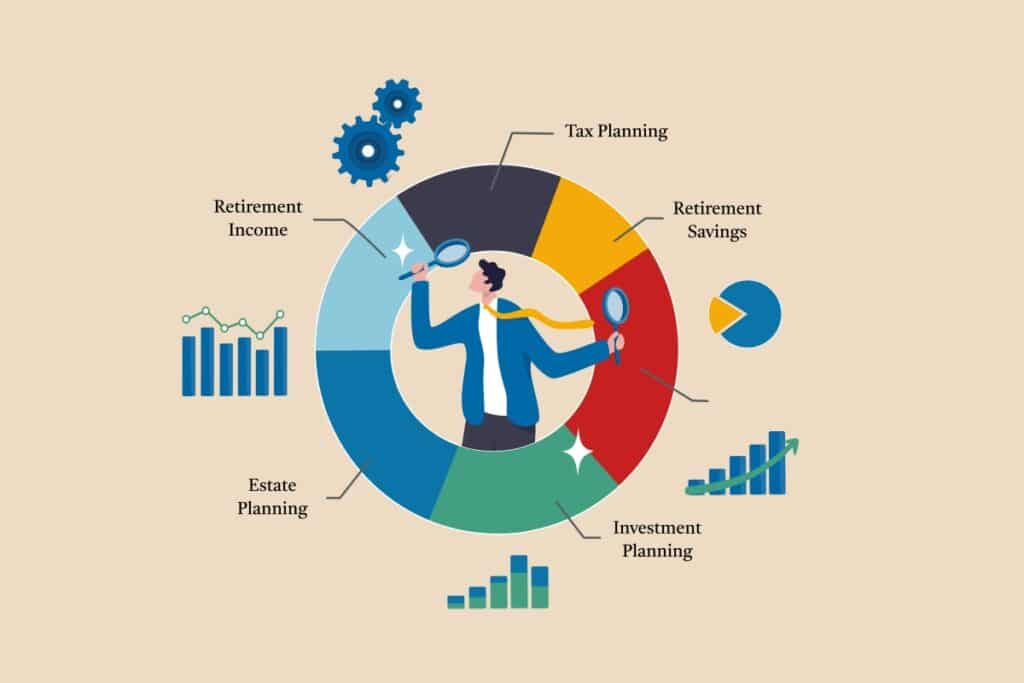First Financial Insights

8 Ways to Maximize Social Security Benefits
Want to get the most out of your Social Security benefits? Smart decisions about when and how to claim can increase your lifetime income significantly.

Health Savings Account: A Complete Guide
A Health Savings Account (HSA) is a tax-advantaged savings account designed to help individuals with high-deductible health plans (HDHPs) pay for qualified medical expenses. What

7 Essential Steps on How to Retire at 50
The average retirement age is between 61 to 67, but no rule says you can’t retire younger. For many Americans, 50 is the ideal age

Top 5 Estate Planning Questions Answered
Estate planning can feel overwhelming, and many people have the same estate planning questions when trying to protect their assets and secure their family’s future.

Revocable vs Irrevocable Trust | Key Differences and Benefits Explained
American retirees will participate in one of the greatest wealth transfers in history, with $36 trillion going to beneficiaries over the next 30 years. However,

What Happens to Your 401k When You Die
American retirees are set to transfer over $36 million dollars over the next 30 years – and many of them will pass along 401(k)s to

Picking an Executor for Your Estate: Why It Matters
An executor of an estate is responsible for managing and distributing a deceased person’s assets according to their will. This involves tasks like starting the

Roth IRA vs Traditional IRA: Which is Better?
Choosing between a Roth IRA vs a Traditional IRA in 2025 depends on when you want tax benefits – now or in retirement. Here’s a

Estate Planning Checklist: 5 Documents You Need
With over $36 trillion in wealth expected to transfer from American retirees to their beneficiaries, it’s surprising that only 32% of Americans have an estate

Economic Commentary – Looking for Clarity (Part 2)
We rarely release sequels; we don’t want to get anywhere close to Rocky 27 (or wherever we are in that long series), but we do

The Essentials of High Net Worth Retirement Planning
Once an investor becomes a high net worth individual (HNWI), they face a number of new retirement challenges. Additional taxes, legacy planning, succession planning, and

Mega Backdoor Roth IRA | Everything You Need to Know
A Mega Backdoor Roth IRA is one of the best ways for high-income earners to maximize their retirement investments. Investors can use their traditional IRA

Economic Commentary – Looking For Clarity
The U.S. is not on a precipice, nor is it staring down an imminent recession, nor is it facing a looming economic crisis. In short,

How to Retire Early | The Essentials of Early Retirement Planning
Thirty-five percent of Americans are retiring earlier simply because they can. But the decision to transition from working life to retirement is a personal and

Trump Tax Plan 2025: How Trump Tax Policy Will Reshape Taxes
2025 will witness former President Donald Trump becoming the new President. It will also witness a fairly extensive revisiting and review of tax rates, many

Best Place to Retire in US | 8 Best States for Retirement
Planning for retirement isn’t just about saving enough money – it’s about making smart choices to stretch those savings and enjoy your golden years. One

Estate Planning Checklist: A Guide to Organizing Your Affairs
With over $36 trillion in wealth expected to transfer from American retirees to their beneficiaries, it’s surprising that only 32% of Americans have an estate

Economic Commentary – What Does The Election Mean?
We’ve all been through a bruising election season, and emotions are running high on all sides of this election’s various debates. As readers of these

8 Ways to Maximize Social Security Benefits
Want to get the most out of your Social Security benefits? Smart decisions about when and how to claim can increase your lifetime income significantly.

Health Savings Account: A Complete Guide
A Health Savings Account (HSA) is a tax-advantaged savings account designed to help individuals with high-deductible health plans (HDHPs) pay for qualified medical expenses. What

7 Essential Steps on How to Retire at 50
The average retirement age is between 61 to 67, but no rule says you can’t retire younger. For many Americans, 50 is the ideal age

Top 5 Estate Planning Questions Answered
Estate planning can feel overwhelming, and many people have the same estate planning questions when trying to protect their assets and secure their family’s future.

Revocable vs Irrevocable Trust | Key Differences and Benefits Explained
American retirees will participate in one of the greatest wealth transfers in history, with $36 trillion going to beneficiaries over the next 30 years. However,

What Happens to Your 401k When You Die
American retirees are set to transfer over $36 million dollars over the next 30 years – and many of them will pass along 401(k)s to
